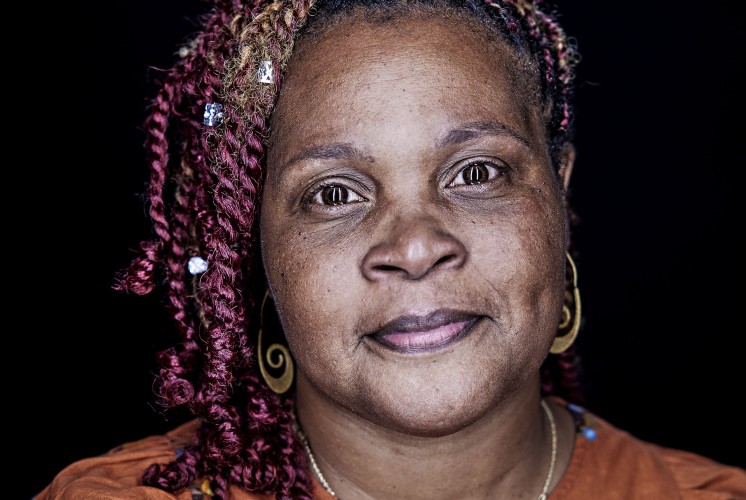This interview has been edited for length and clarity.
DEBT FREE JUSTICE: Tell us about yourself and why you’re here today.
CHANDRA GRAYSON: My name is Chandra Banks Grayson. I am a Coalition Builder at Ubuntu Village in New Orleans, Louisiana. I'm here today to discuss the impact of the fines and fees that it had on my family.
DFJ: How did fees and fines impact your family?
CHANDRA: At 16, my stepson stole his mother's car, and from there, it was just downhill. He’s remained in the system. Just a very difficult time for our family.
DFJ: I appreciate you telling your story. Why is it so hard for kids to leave the system once they’re in the system,
CHANDRA: They are a target once they come into the system, and once they're in the system, they do not get any help while there. And that’s when a lot of issues occur.
DFJ: Did you get much social support? Were there resources accessible to you and your family?
CHANDRA: Help? No, my husband and I weren't poor, but we didn't have an avenue to reach out to people to help. We didn't have money for a lawyer. We had our preacher and church friends, but we didn't have the resources. If we were a family of means, our son would not have spent time in the system.
Alton is 37 now. He has been in and out of the system repeatedly. Once he's in that system, he can drive a car, they're gonna stop him. And as a black parent, I've tried to do everything because I've been around this system. I've tried to tell him what he should do, but it doesn't matter. It doesn't matter for him being a young black male, they're gonna stop him. Wear hair a certain way, his clothes a certain way, they're gonna stop him.
So that's the hard part. And being in this line of work, it's like, oh, it's not gonna happen to our children. And for a long time, I blamed everybody else if I saw it happening to other people. But when it happens to your family, that's when people get involved. I must say that's when my boots got on the ground.
DFJ: How did the financial burden impact your day-to-day life?
CHANDRA: All the court debts caused much confusion in our home. My husband and I had just married. He was trying to make sure he, as a father, took care of his son. As a new husband, to make sure that I had what I needed. It was very rough in the beginning because of the fines and fees. And when he did get out, our son tried daily to find a job, but couldn't find one, and the responsibility was definitely left to both families to try to get these fines and fees paid. It was very difficult.
DFJ: What were the consequences if the fees and fines weren’t paid?
CHANDRA: It got to the point where he would be picked up, or the parents could get in trouble if those weren't taken care of.
We could see the discouragement on his face because that checkbox would say, “Have you been convicted?” So when the parole officer would call, and Alton still didn’t have a job, he would have to pay what he needed to pay. So my husband, I, and his mother would get together and pay that payment.
DFJ: Did it ever come to the point where you had to decide between bills and paying the fees and fines?
CHANDRA: Absolutely. If I had a choice between the utility bills and Alton, of course, we're gonna choose Alton first.
DFJ: What do you say to people who say actions of consequences?
CHANDRA: I don't believe that Alton nor his father, or I should have to make a choice between our utility bills, or our house payment, because we are taxpayers. I am a taxpayer. Alton did what he did, and it shouldn't be held against us, his parents.
I don't think they should fund [the system] that way. I don't think any family should have to go through this emotion. Court fees and fines have major impacts on families. They just need to be eliminated.
DFJ: If you could speak to your community, what would you say to people who are system impacted or are just learning about this campaign:
CHANDRA: There have been 20 states that have come onto this campaign, and we're trying to get all 50 states to join in, so your family can move forward and be productive citizens. I want your family to be motivated to move forward.
